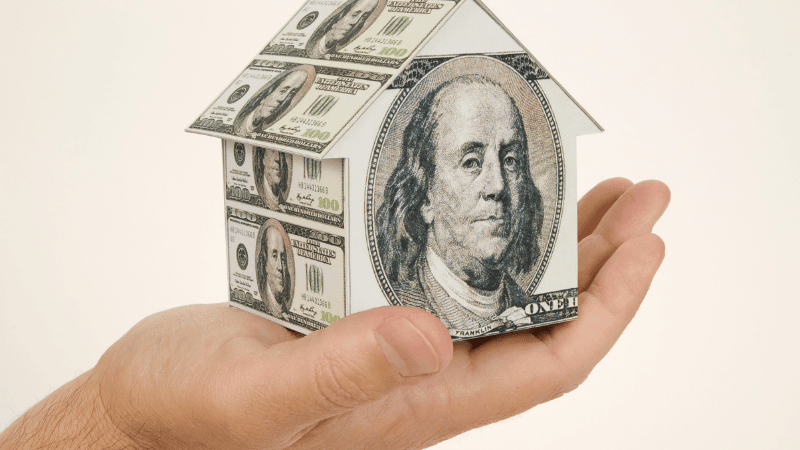Get Expert Financing
- Matched with investor-friendly lenders
- Fast pre-approvals-no W2s required
- Financing options fro rentals, BRRRR, STRs
- Scale your portfolio with confidence
Because most reverse mortgages are FHA loans, they are harder to get on a condo.
The property must meet specific criteria set forth by the Federal Housing Administration (FHA), which insures reverse mortgages through the Home Equity Conversion Mortgage (HECM) program.
This program is the most popular type of reverse mortgage, and it’s regulated by the U.S. Department of Housing and Urban Development (HUD) and comes with sturdy borrower protections.
Condo owners who are over 62 should consider a reverse mortgage, because it can secure their retirement.
Get started on a reverse mortgage qualification for your condo.For a condo owner to be eligible for a reverse mortgage, both the individual and the condominium complex must meet specific criteria.
First, the homeowner must:
The condominium complex must also meet FHA guidelines, which include:
There are several potential pitfalls to be aware of when pursuing a reverse mortgage on a condo.
One of the primary challenges is getting your condominium complex approved by the FHA. Many complexes do not meet the strict guidelines set forth by the agency, which can make it difficult for individual unit owners to obtain a reverse mortgage.
Another common pitfall is the possibility of the HOA refusing to apply for FHA approval.
If the HOA is unwilling to provide necessary information or make required changes, the reverse mortgage process may come to a halt.
The FHA-approved condo list is a searchable database of condominium complexes that have been approved by the FHA for reverse mortgages.
The list can be accessed on the HUD website and searched by location, name, or status.
To use the FHA-approved condo list, follow these steps:
If your complex is not listed, it may be necessary to apply for FHA approval before you can obtain a reverse mortgage.
In the past, the FHA offered a “spot approval” process, which allowed individual condo units to be approved for a reverse mortgage, even if the entire complex did not meet FHA guidelines.
While this particular process was discontinued in 2010, it was revived in 2019 under a different name.
In 2019, the FHA introduced a new “single-unit approval” process. This allows individual condo units to be approved for FHA financing, even if the complex is not on the approved list.
This process is intended to provide greater flexibility for condo owners seeking a reverse mortgage, but it still requires the complex to meet certain criteria, such as adequate insurance coverage and financial stability.
To get a single-unit approval, your condo complex must:
Basically, if a condo complex would qualify for FHA financing, you may be eligible for a single-unit approval.
Get help securing a reverse mortgage with a spot approval.If your condominium complex is not currently FHA-approved, you may consider taking steps to get the complex approved yourself.
This process can be time-consuming and may require the cooperation of your HOA, but it can ultimately increase the value of your property and make it easier for you and your neighbors to obtain financing.
To get your complex approved, follow these steps:
If a reverse mortgage is not the right option for you, there are several alternatives to consider.
A HELOC enables you to borrow funds against the equity in your home, providing a line of credit that can be used for various expenses. This option typically has lower fees than a reverse mortgage, but it does require monthly payments. The condo does not have to be on an approved list to qualify for a HELOC.
Similar to a HELOC, a home equity loan enables you to borrow against your home’s equity, but it provides a lump sum payment instead of a line of credit. This option also requires monthly payments and may have lower fees than a reverse mortgage.
If your original mortgage interest rate is higher than current market rates, you may consider refinancing to lower your monthly payment and free up cash flow.
Selling your condo and moving to a property that is eligible for a reverse mortgage can free up equity and reduce your expenses. You can buy a home with a reverse mortgage and never have a payment.
Start your reverse mortgage to purchase a home.If your HOA allows it, you may consider renting out your condo to generate additional income.
If you decide that a reverse mortgage is right for you, follow these steps to apply:
Before pursuing a reverse mortgage on your condo, it is very important to weigh the pros and cons:
A reverse mortgage on a condo can be a valuable financial tool, but it requires careful planning and consideration of the unique challenges associated with condominium ownership.
By understanding the eligibility criteria, common pitfalls, and alternatives, you can make an informed decision about whether a reverse mortgage is the right option for you.
Start your condo reverse mortgage.Our advice is based on experience in the mortgage industry and we are dedicated to helping you achieve your goal of owning a home. We may receive compensation from partner banks when you view mortgage rates listed on our website.
